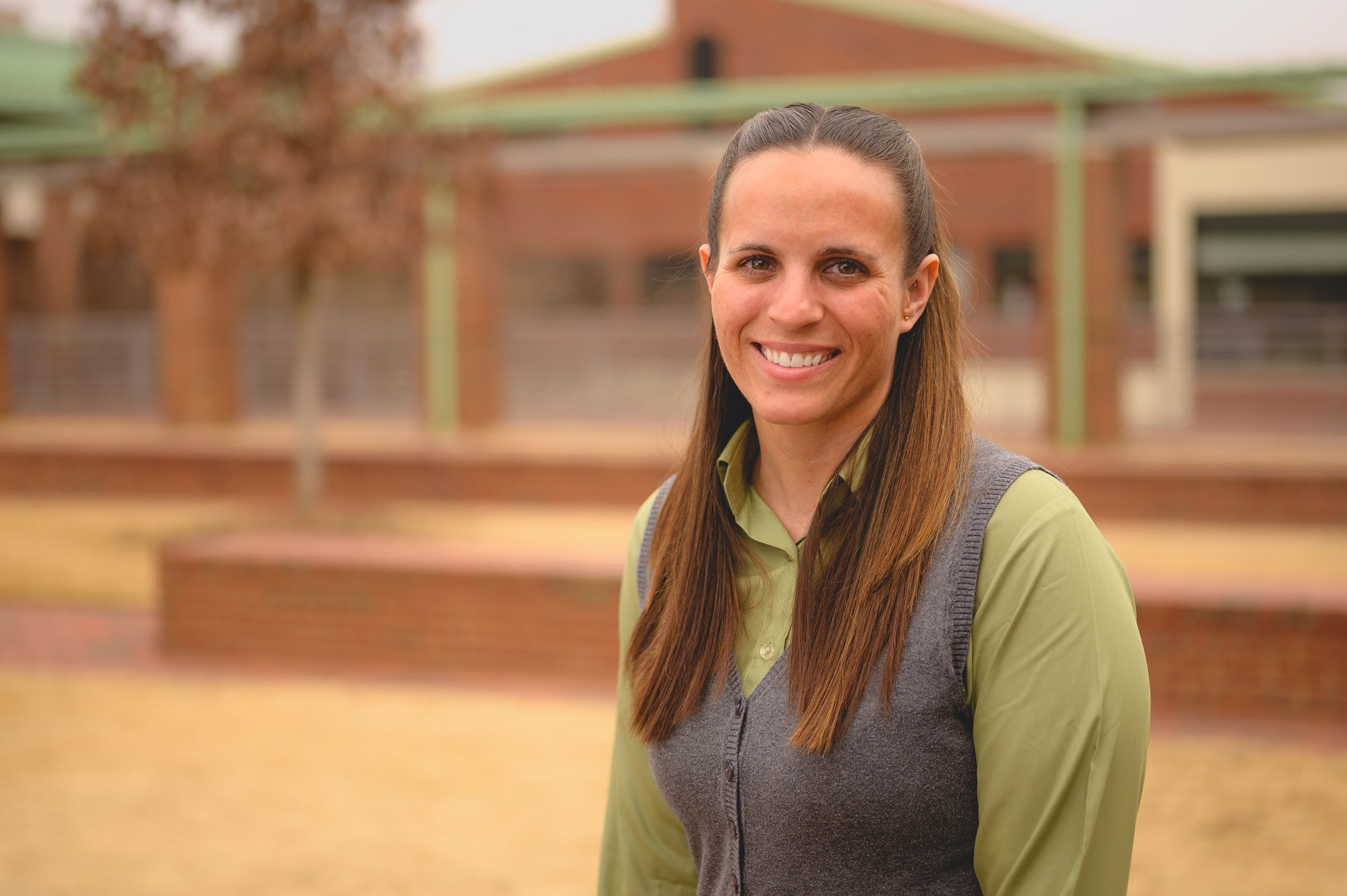CVM Awards First Certificate in Global Health

The NC State College of Veterinary Medicine awarded its inaugural certificate in global health to fourth-year student Lizabeth Rennecker, whose work included laying the foundation for groundbreaking infectious disease research in Uganda.
Rennecker, who’s set to graduate with the Class of 2019 in May, is the first student to earn a certificate in global health since the program launched in 2015.
Part of the college’s comprehensive global health program, students earn the certificate after taking several global health-related core selective courses, including global health challenges and research methods, as well as a slew of other far-ranging selectives such as emerging global diseases and veterinary medicine terminology in Spanish.
It’s all completed in tandem with the CVM’s four-year of the DVM curriculum.The centerpiece of the program is a two-month international research project. Taken during the summer after a student’s first or second year at the CVM, the project gives boots-on-the-ground experience organizing impactful research in countries that need it the most. Students learn technical research skills, but also navigate the tricky waters of garnering financial support for their research and the intricacies of working with sometimes hesitant local populations. Only a few veterinary schools in the United States offer such a specialized certificate.
Rennecker spent eight weeks working in Uganda setting up a study that would, for the first time, examine the presence of swine chlamydia in the country and the health risk for area farmers. She organized supplies, developed and conducted a small pilot of the project, traveling to farms and taking samples for analysis. Her favorite part was talking with area farmers about their work.
“I responded to the overall concept of the program, that veterinarians can have such a profound impact on people’s lives and people’s livelihoods,” said Rennecker.
Rennecker entered the CVM already interested in international development. As a psychological operations specialist with the U.S. Army, Rennecker was on active duty from 2006 to 2010 and deployed twice, to Qatar and Jordan. She served in the Army Reserves until 2013. When deciding what to do next, her international development interest morphed into an interest in global health and becoming a veterinarian. At the CVM, she was able to quickly merge the two.
During the fall of her first semester, she met Andy Stringer, the director of global health education who leads the global health certificate program. He would eventually serve as Rennecker’s mentor, and the two worked closely through the years on choosing the most appropriate selective courses and hammering out the details of the international project.
The international projects typically address such issues as infectious disease, antimicrobial resistance and food security, three areas that are particularly strong suits of the CVM’s research programs.
“These are going to be major trends and issues that will have an impact on society in the next 20 and 30 years,” said Stringer. “We need to have graduates, the next generation, coming out prepared to engage with these grand global issues.”
The global health certificate, and the CVM’s global health program as a whole, demonstrate the college’s focus on improving human, animal and environmental health through innovative education and unparalleled research. A strengthened global health program at the CVM, combining its existing global health education program with its global health research work, was announced last November, with CVM professor Sid Thakur named director of global health at both the CVM and NC State.
The program is led by faculty with extensive global health experience, both in CVM classrooms and labs and thousands of miles away in developing countries that are epicenters of global health challenges. Stringer, for example, is the founder of the Health and Livelihoods Group, or HEAL Group., which focuses on health issues in Ethiopia and Uganda.
Since coming to the CVM in 2015, Stringer has been a part of a global health team that has built unique new educational programs, including a new master’s of public health with global health emphasis program, a collaboration with the UNC-Chapel Hill Gillings School of Public Health. There have been more faculty-led trips abroad. Newly hired faculty and staff have brought new contacts and experiences to share with students through mentorships. An endowment from the Terry Foundation covers the majority of student expenses during the two-month international project.
“It’s an exciting time at the CVM for global health. There’s a real energy and enthusiasm,” said Stringer. “We try to give students as much free reign as possible to follow their passion.”
Many students turn their global health interest into a career, often through work with nonprofits, animal health organizations or governmental agencies. Some go on postdoctoral work in their focus area. Rennecker said she plans to go into small animal practice, but it is important to her to work in some area of global health at the same time, either through volunteerism or joining established research projects.
“This program helps you develop yourself and helps you see where you really fit in within global health,” said Rennecker.
Stringer is optimistic for the future of the certificate program, and for CVM’s role as a leading veterinary school in global health. He said every year, a dedicated number of students enter the CVM with a passion for a career in international animal health or global health. The most effective global health veterinarians, he said, quickly develop a strong compassion for the people they meet who are living in areas with profound inequalities.
Then they leave the CVM and get to work.
“We hear some negatives about this millennial generation, but I genuinely think they want to change the world,” said Stringer. “This generation wants to do something good with their time. I think this program allows them to harness that enthusiasm.”
~Jordan Bartel/NC State Veterinary Medicine
- Categories:


